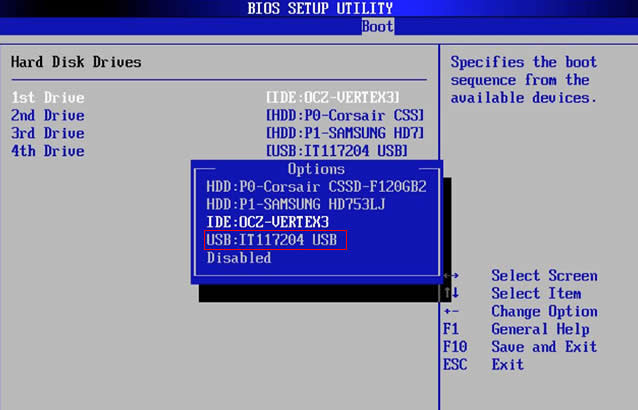Not Booting From Usb
I received a new P51 Laptop and I'd like to install linux on it (dual boot with Windows). CD/USB boots perfectly fine in legacy BIOS mode.
Surface will try to boot from any other connected USB devices. If you don’t want to start your Surface from your USB drive, make sure the drive is not inserted in the USB port on your Surface when you start it. If you’re having trouble starting your Surface by using the steps below, you can boot it from the USB drive through Windows.
But when I switch to UEFI only (even with Secure Boot disabled!), I can't boot from CD/USB anymore. In the boot menu (F12) the options are shown, but after selecting to boot from CD/USB, the screen goes black and quickly returns to the boot menu. The installation media contains an EFI loader, so this can't be the issue. Further secure boot is disabled. So - to my understanding - it should theoretically work.
And I don't want to fall back to legacy BIOS boot.Anyone else experienced this problem? Does anyone have a suggestion on how to solve this issue? Thank you for your answer! I tried as you suggested. I downloaded Windows 10, burned it on a DVD, set the system to UEFI only.
Windows 10 Setup did not boot up from the DVD! Same issue as when I try to boot a linux from DVD/USB. I searches the DVD, screen turns black, then - after three/four seconds - returns back to the UEFI boot drive selection menu (F12 menu).I already tried starting linux from an USB stick. Same issue, the system does not boot in UEFI only mode.It seems that all my attempts to boot a system from a DVD/USB strick in UEFI only mode fail. And so far I have not found any solution.
Manjaro Not Booting From Usb
Rechargeable batteries for xbox 1. Do you have another idea on how to solve this?My currently only solution is unfortunately this one: boot and set up the computer in legacy bios mode.:-(. Ok, here we go.I downloaded the newest debian net-installer from:created a USB stick using linux command:dd if=debian-9.1.0-i386-netinst.iso of=/dev/mmcblk0 bs=1M(basically the same like using a Disk Imaging tool in Windows)Then I rebooted the P51, set it to UEFI only and tried to boot from the USB stick: as expected it does not work. Does your P51 boot?I then investigated the USB stick (to check what you mentioned: if we have a FAT32):running fdisk /dev/mmcblk0:Device Boot Start End Sectors Size Id Type/dev/mmcblk0p1. 0 700 375M 0 Empty/dev/mmcblk0p2 3792 4399 608 304K ef EFI (FAT-12/16/32)so we have a FAT EFI boot partition.diving in a bit further:# file -s /dev/mmcblk0p2/dev/mmcblk0p2: DOS/MBR boot sector, code offset 0x3c+2, OEM-ID 'mkfs.fat', sectors/cluster 4, root entries 512, sectors 608 (volumes. Wrote:I'm not a debian expert, but your link appears to be a 32-bit (i386) version of the OS. UEFI firmware can only boot to 64-bit OS. So please try amd64 version of your OS (not i386 version).
If you still can't get it working, I will try it myself on Monday. If you insist on using 32-bit version then legacy mode is your only choice.That's definitely a 32 bit UEFI ISO. You need the amd64 version as stated above.Actually good to know that there are 32-bit UEFI ISOs available.

That's been an issue in the past for the rare machines that had 32-bit BIOSen but were UEFI-only. People had to hand-build install images.edit Ubuntu 17.04 i386 still isn't UEFI-bootableBTW, if your dd method works for you great. From a Windows machine I use 7zip to extract ISO contents to FAT32-formatted flash drives with a single partition. Works fine with Ubuntu and the other Debian-based distros I've tried.Z.